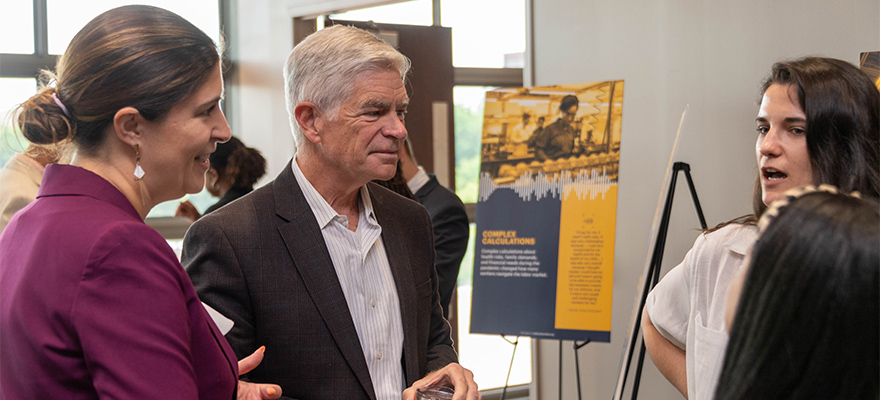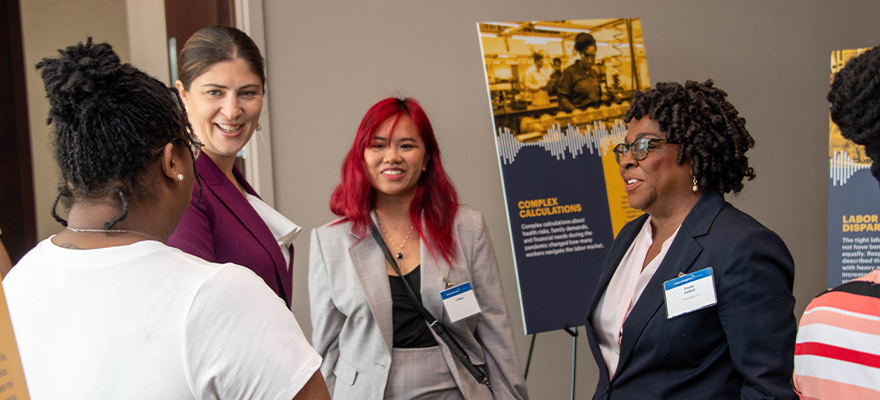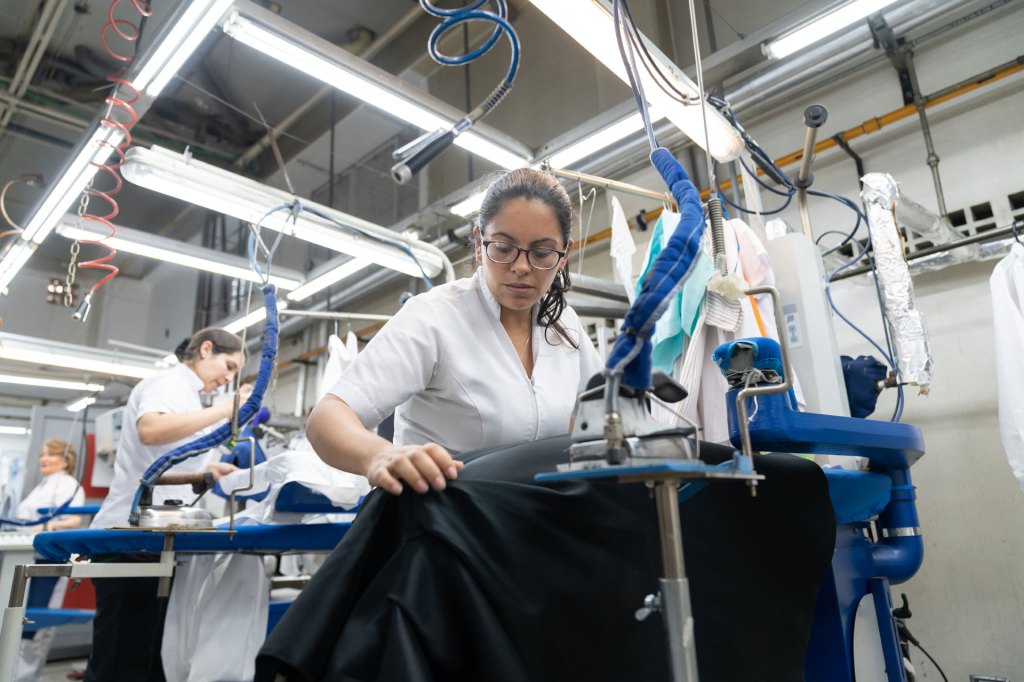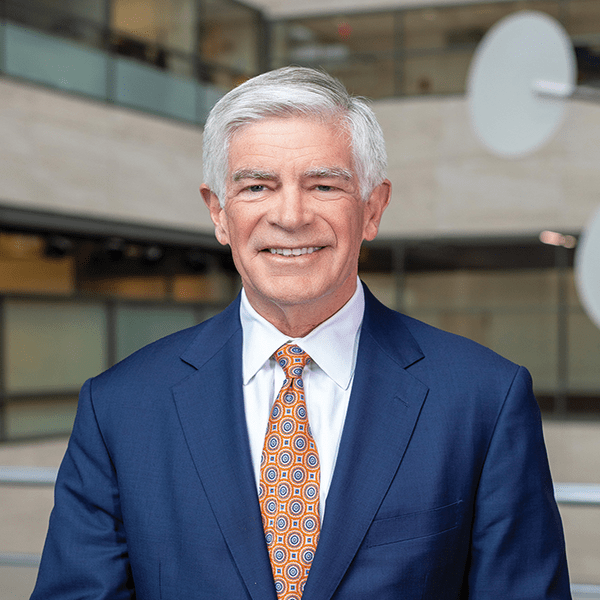The following essay, initially authored for the Philadelphia Fed’s Perspective series, delves into the value of the Worker Voices Project. We are pleased to republish it here with permission from the Federal Reserve Bank of Philadelphia.
As we think of ways to build the strong economy of tomorrow, we cannot afford to leave workers without a four-year degree, and their enormous potential, on the sidelines.
“I know that I can bring a lot to the table. Are you going to uphold your end of the half as an employer?” – Worker Voices participant
The workforce landscape, and the nature of work, is changing. To be sure, this is nothing new. The concept of what it means to work, and what work means, has continuously evolved through technological advances and societal and cultural change — not to mention our basic human desire to just try to make society work better.
Today, as in days past, our labor market needs talent equipped with the skills and knowledge to meet the challenges of the moment. But if this moment feels different, it is because it is different.
As I travel across the Philadelphia Fed’s District, I routinely hear from some employers facing the twin challenges of a lack of new applicants and increased turnover among current employees. Moreover, the classic tools they had used to attract and retain workers — higher wages and better benefits, among them — aren’t working as they once did. Employers in our region broadly echoed these concerns in a recent study.
But we cannot think that things will fall back to normal if employers simply double down upon previously established business practices. This moment in time begs us to look below the surface to see what is actually happening in the undercurrents of the labor market.
Workers are looking for ways to move up the economic ladder and thrive. This is especially true at the lower end of the wage scale and among workers without college degrees. And as we think of ways to build the strong labor force of tomorrow, we cannot afford to leave these workers and their enormous potential, in particular, on the sidelines.
The Worker Voices Project brought together researchers from the Federal Reserve Bank of Philadelphia, the Federal Reserve Bank of Atlanta, and partner Reserve Banks from across the country to bring these workers to the middle of the playing field. Understanding the labor market is one of the most important things we do at the Fed. It reflects part of our dual mandate of price stability and maximum employment. Worker sentiment is one piece of this larger puzzle.

Over the years, numerous surveys have been conducted with employers and workers to understand the labor market. Those surveys have tried to gain insights by asking participants to select one prepared response or another that best fits their beliefs and their situations. These surveys have helped guide public opinion and influence both employer actions and broader policy decisions. The Fed also regularly conducts studies of consumers, small business owners, and others.
Hard data are essential to our understanding of the economy. But soft data offer an opportunity to further connect the dots when it comes to explaining how workers in low-wage positions, specifically, make decisions around work.
Jobs are not one size fits all, and neither are workers. The Worker Voices Project listened to workers without a four-year degree through a nationwide series of open-ended, focus-group conversations. No set and preselected answers. And no need to choose one response over another when the actual answer could be both — or just as likely one that a survey author never even thought up.
For a year, we listened. And what we heard was that the factors going into the decisions of where to work, or whether to take an entirely different approach, were increasingly complex. And these complexities are now forcing us to rethink much of what we thought we knew about labor markets.
And what we are increasingly realizing is that workers want something that classic theories of labor markets don’t take into account and something for which we do not have a way to represent on a graph: They want to be treated with respect and dignity.
So first, yes, workers want to be paid wages and provided benefits equal to what they are worth and bring to the table. And workers relayed their own concerns about being able to cope as inflation impacted what they saw in their paychecks. But importantly, it’s not all about compensation.

Workers also told us they want managers who view them as people and not as tools for their business. This goes far beyond having a manager who greets them with a hearty “good morning” or who is willing to make chitchat. They want a manager who understands that their employees are people with lives and families outside of work and that sometimes those lives require added measures of flexibility and empathy. And if their current workplace does not provide this ability, they’ll look for it elsewhere, even if it means leaving the workforce altogether.
Whether it’s on the job or on their own time, workers want the ability to gain new skills that provide upward mobility and long-term stability. They don’t want a job that just gets them through the day, but one that has the opportunity to grow into a satisfying and high-quality career. An entry-level job shouldn’t be viewed as a dead-end job. Workers in low-wage positions do not want to be pigeonholed as low-wage workers.
During the spring, I had the opportunity to meet several of the workers who participated in the Worker Voices Project to hear firsthand from them. As one worker said to me, “We’re looking for a place where we belong.” But even more impactful were the words of another: “Work is not the end-all, be-all.”
The Philadelphia Fed will bring workers like these to the table with HR managers, employers, and other stakeholders to collaborate on solutions to improve the workforce system in our region. As an engineer by training, I know that getting the right people in a room together can spark new ideas that transform deep-rooted structures.
I am proud that our research is being put into action toward innovations that can meet the needs of our workforce while forging the strong economy of tomorrow. And this research is not just going to benefit us as economists but, ultimately, more so as a society.
The views expressed here are solely of the author and do not necessarily reflect the views of the Federal Reserve Bank of Philadelphia, the Federal Reserve System or Fed Communities.


